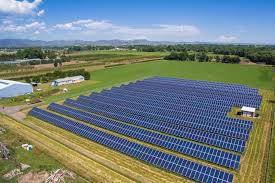How some Western cities are leading on climate action

A college town of 155,000 people known for its beers and bike lanes, Fort Collins, Colorado, adopted an ambitious climate action plan this past spring to cut its carbon emissions 80 percent by 2030 and be carbon-neutral by 2050. The initiative lacks worldwide reach, but it outpaces the goals of the Paris pact, with an aggressive timeline matched by only a few other cities, including Seattle, Copenhagen and Sydney. Even as world leaders have dragged their feet, taking 21 frustrating years and annual conferences to finally set some climate goals, cities like Fort Collins have charged ahead, determined to drastically reduce greenhouse gas emissions to avoid ecological catastrophe.
The city passed its first action plan and started measuring its emissions in 1999. With its purple political background and acknowledged need to wean itself from coal power, Fort Collins could serve as a blueprint for other, similarly sized communities.
Even though the city’s last four mayors have all leaned to the right politically, they have all generally supported climate action. Current Mayor Wade Troxell, a Republican, was among 27 mayors who penned a letter to President Obama this June, asking him to “fight for the strongest possible climate agreement” in Paris and “for federal action to establish binding national greenhouse gas emissions reductions here at home.” While other politically fraught issues, from a city fracking moratorium to relaxed public-nudity laws, have recently split the council, it unanimously approved the aggressive new climate-action plan this spring.
“How some Western cities are leading on climate action”
High Country News, January 13, 2016